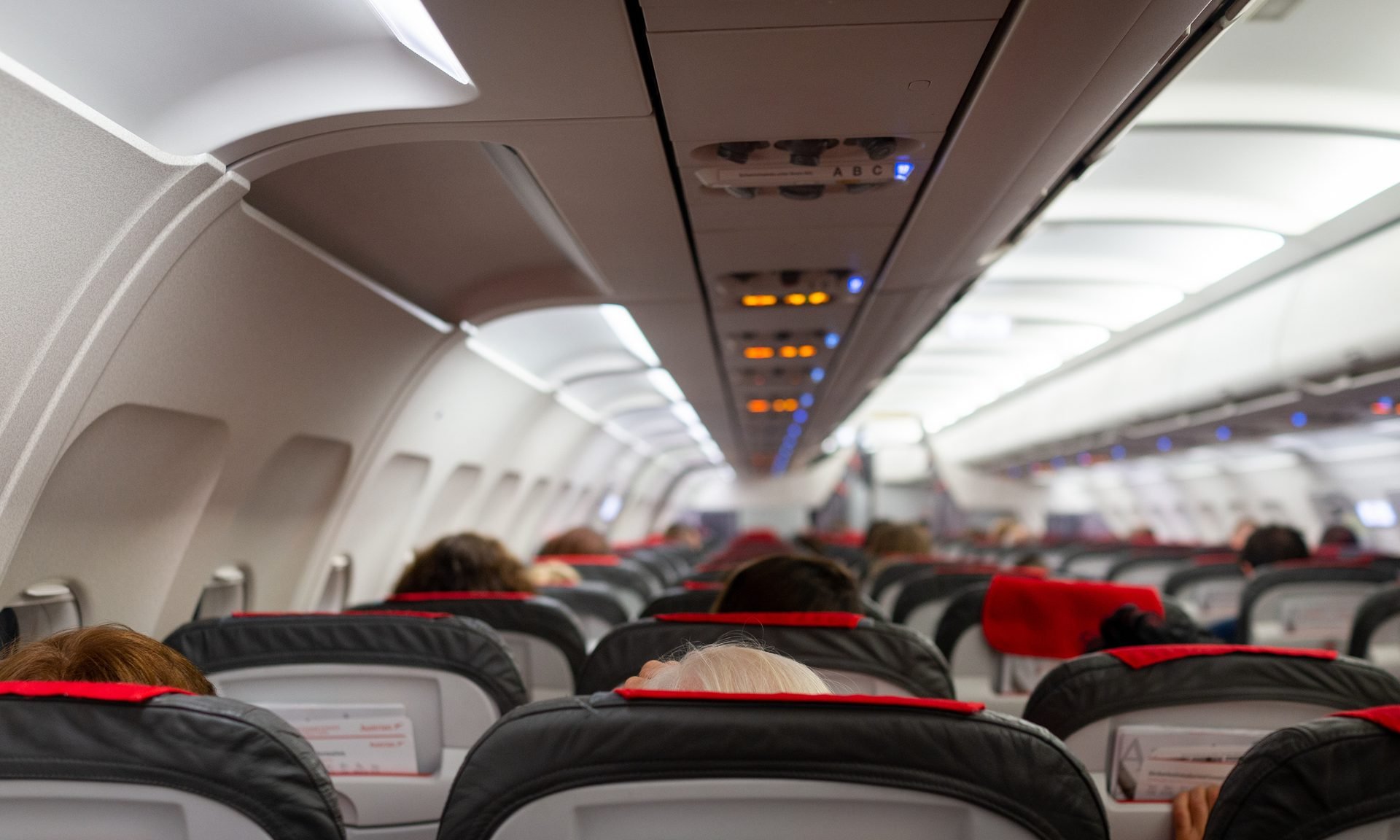DOT’s Frequent Flyer Program Inquiry: What’s Being Investigated
The Department of Transportation is looking into whether policies around airline miles are deceptive.

Many or all of the products on this page are from partners who compensate us when you click to or take an action on their website, but this does not influence our evaluations or ratings. Our opinions are our own.
The U.S. Department of Transportation (DOT) has questions about frequent flyer programs. On Sept. 5, 2024, the agency announced it has launched an inquiry into loyalty programs of the four largest U.S. airlines: American Airlines, Delta Air Lines, Southwest Airlines and United Airlines.
The information gathered in the inquiry could inform future policy changes around these programs, which might affect how consumers earn and redeem airline points and miles. DOT says the goal of the inquiry is to make sure frequent flyer programs are transparent and fair to consumers, meaning the airlines are not misleading their loyalty program members with deceptive or anticompetitive practices.
“Frequent flyer miles and credit card rewards have become such a meaningful part of our economy that many Americans view their rewards points balances as part of their savings,” U.S. Department of Transportation Secretary Pete Buttigieg said in a press release. “But unlike a traditional savings account, these rewards are controlled by a company that can unilaterally change their value.”
This probe is the latest action to improve airline passenger rights with more oversight of the airline industry. The DOT also created rules that require airlines to give automatic cash refunds when flights are canceled and to shield customers from surprise airline junk fees.
What the DOT wants to investigate in frequent flyer programs
There are four specific areas in question about how airlines run their loyalty programs:
- Rewards devalution. The DOT wants to know every change airlines made to rewards programs over the last six years, especially examples that may have made their rewards less valuable. That could include the addition of blackout dates, points expiration, increasing the number of points needed for elite status or award redemptions, and any refusals to honor rewards.
- Hidden and dynamic pricing. Airlines can muddy the dollar value of miles and hide devaluations through dynamic pricing, which is when the points price fluctuate wildly based on demand. As part of the inquiry, airlines must give the average dollar value of each mile, along with other information.
- Added fees. Some airlines charge fees to redeem or transfer miles, and that can decrease the value of the miles by making them more expensive to use or maintain.
- Mergers and partner programs. Airline loyalty programs are often used to redeem miles on partner airlines as well. (In fact, that’s one of the best ways to get a high redemption value for your miles in some programs.) The DOT wants to know if mergers and partnerships negatively impact customers by driving up consumer costs.
The selected airlines have until Dec. 4, 2024, to respond and answer the DOT’s many data requests, such as:
- Describe every elite status level.
- Disclose how much money a consumer must spend on co-branded credit cards for each status level, benefit and rewards.
- Identify every fee related to the loyalty program.
- Provide documents for every change to the rewards program over the last six years, including reasoning and how the changes were communicated.
- Compile a list of the top 10 customer complaints about the rewards program, number of complaints, resolutions for each issue and the average dollar amount of each dispute.
This inquiry comes months after the DOT and Consumer Financial Protection Bureau (CFPB) held a hearing in May 2024 on airline and credit card programs.
That same month, the CFPB released a report saying 1,200 complaints involving credit card rewards were received in 2023 — a 70% increase compared to pre-pandemic levels. These issues are related because co-branded airline credit cards earn miles that feed directly into airline loyalty programs.
Southwest said in an email that it is proud of its Rapid Rewards program. "Our commitment to providing customers with Rapid Rewards points that never expire, regardless of how they’re earned, has led us to have double the industry average of seats booked with points," a Southwest spokesperson said via email.
A Delta representative shared a similar statement about its commitment to Delta SkyMiles members via email. "Our members' loyalty means everything to us, and providing a meaningful rewards experience is the top priority within Delta's SkyMiles Program." The airline also acknowledged they had received the DOT's inquiry and will respond accordingly.
American Airlines and United Airlines deferred to the statement from Airlines for America, an airline trade association, which said, "Millions of people enjoy being a part of various loyalty programs, which allow them to accumulate rewards to apply toward travel or other benefits. U.S. carriers are transparent about these programs, and policymakers should ensure that consumers can continue to be offered these important benefits."
What could change about airline loyalty programs?
This inquiry is getting at the conflict of interest between airlines providing miles to customers and also setting — and changing — their value at will.
It would be interesting to see the airlines’ responses, if the DOT decides to release it, especially how much each airline thinks their mileage currency is worth. NerdWallet looks at hundreds of award bookings each year to give customers an estimate of how much miles are worth because airlines do not publish this information.
While this DOT probe is focused on miles, airlines offer many other rewards that aren’t under as much scrutiny, like upgrade certificates, companion certificates and priority upgrades just for having a credit card. If adjustments are made to flight awards redeemed with miles, airlines could always pivot toward other benefits.
One concern is that airlines could “streamline” mileage programs to make them easier to understand. While that sounds positive, it could have the unintentional effect of erasing so-called “sweet spots,” which are rewards with outsize value, in the name of simplification. On the other hand, if all awards had a guaranteed rate, it could raise the overall value of miles.
Another potential result is that the DOT could add more regulations for communicating changes. More advance communication would certainly be a net win for consumers, especially if they had recourse for unannounced changes.
What you can do to hedge your bets
Using a credit card that earns transferable points or miles — such as the Chase Sapphire Preferred® Card or Citi Strata Premier® Card — is one way you can hedge against airline loyalty program devaluations. These programs allow you to accrue rewards and transfer your points to the partner programs when you find a redemption that will give you the most value. This way, you’re not directly affected by sudden devaluations and can still watch for sweet spots. Those are big reasons why transferable points are worth more.
How to maximize your rewards
You want a travel credit card that prioritizes what’s important to you. Here are some of the best travel credit cards of 2026:
- Flexibility, point transfers and a large bonus: Chase Sapphire Preferred® Card
- No annual fee: Wells Fargo Autograph® Card
- Flat-rate travel rewards: Capital One Venture Rewards Credit Card
- Bonus travel rewards and high-end perks: Chase Sapphire Reserve®
- Luxury perks: American Express Platinum Card®
- Business travelers: Ink Business Preferred® Credit Card
Article sources
NerdWallet writers are subject matter authorities who use primary,
trustworthy sources to inform their work, including peer-reviewed
studies, government websites, academic research and interviews with
industry experts. All content is fact-checked for accuracy, timeliness
and relevance. You can learn more about NerdWallet's high
standards for journalism by reading our
editorial guidelines.
Limited Time Only: Earn $1,000 Toward Travel!
Capital One Venture Rewards Credit Card 
Travel

For a limited time, the
Capital One Venture Rewards Credit Card is offering new cardholders an especially rich bonus: Enjoy $250 to use on Capital One Travel in your first cardholder year, plus earn 75,000 bonus miles once you spend $4,000 on purchases within the first 3 months from account opening - that’s equal to $1,000 in travel!
More like this
Related articles







